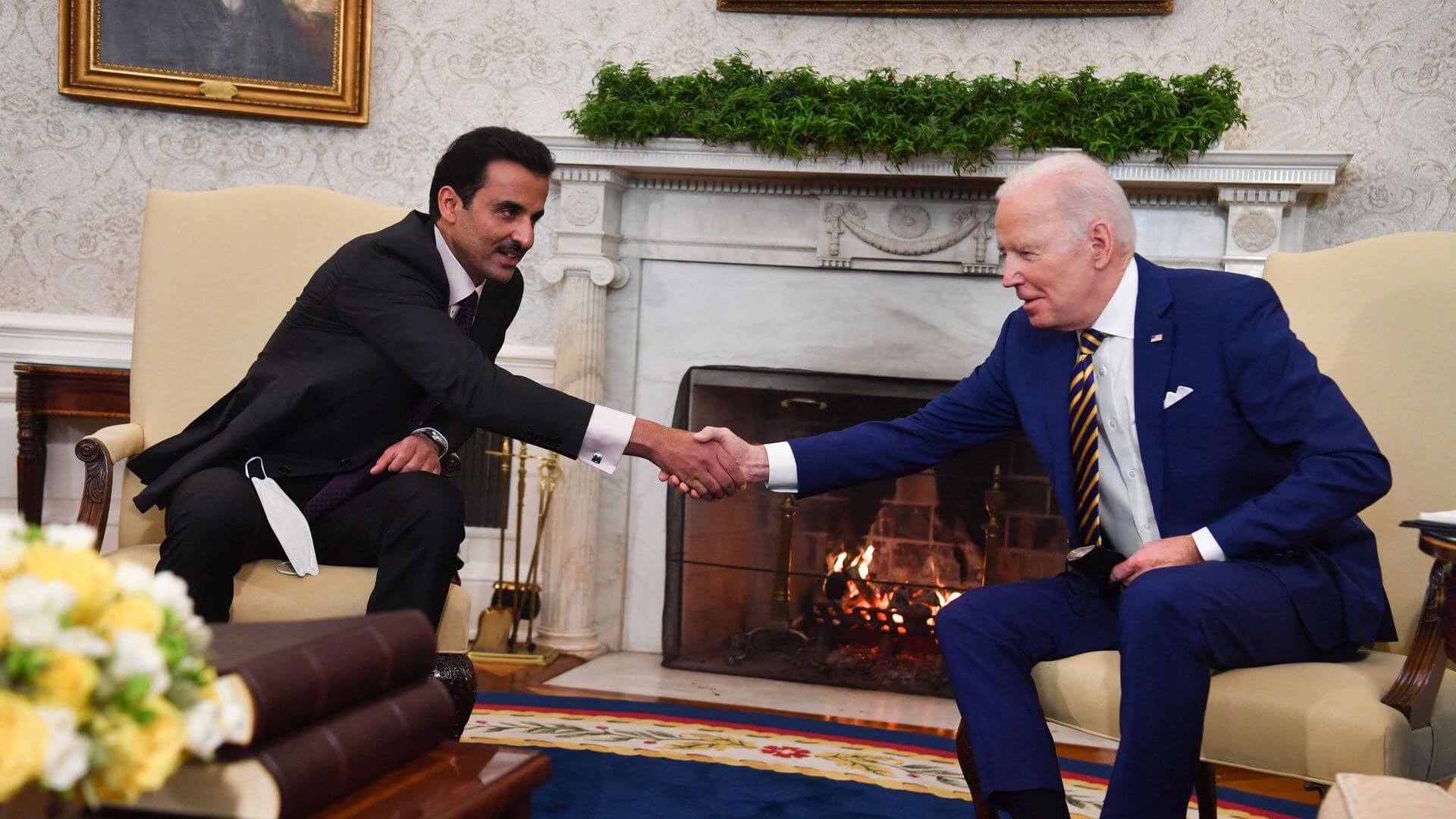The United States (US) President Joe Biden met with the emir of Qatar, Sheikh Tamim Bin Hamad Al-Thani, on Monday. Thani is the first Gulf leader, as well as the first head of state to visit Washington in 2022.
During their meeting, Biden announced his intention to designate Qatar as a “Major Non-NATO Ally.” “I’m notifying Congress that I will designate Qatar as a major non-NATO ally to reflect the importance of our relationship; I think it’s long overdue,” Biden said.
The North Atlantic Treaty Organisation (NATO) is a security alliance comprising the US, Canada and their 28 major European allies. The decision makes Qatar the second Gulf country after Kuwait to become a US major non-NATO ally.
The formal upgradation would allow Doha special economic and military privileges in its relationship with Washington, including eligibility for loan programmes and priority delivery for certain military sales. According to a State Department fact sheet, “The Major Non-NATO Ally designation is a powerful symbol of the close relationship the US shares with those countries and demonstrates our deep respect for the friendship for the countries to which it is extended.”
Further elaborating on the importance of the designation, the US State Department’s spokesperson Ned Price told reporters on Monday that the move indicates that the US-Qatar relationship “has never been stronger” due to their “extraordinary partnership across any number of challenges.”
Had fruitful discussions with President Biden @POTUS in which we exchanged views on regional and international developments. The strategic partnership between our countries is bringing peace and stability to our region.
— تميم بن حمد (@TamimBinHamad) January 31, 2022
Price added that the Biden administration decided to make the move after Qatar offered “extraordinary support” in hosting and relocating individuals evacuated from Afghanistan “whether they’re US citizens, [...] lawful permanent residents, or [...] Afghans to whom we have a special commitment.” “Of course, the relationship extends well beyond, including in the security realm,” Price concluded.
According to a press release by the White House, both leaders also “reaffirmed their mutual interest in promoting security and prosperity in the Gulf and broader Middle East region, ensuring the stability of global energy supplies, supporting the people of Afghanistan and strengthening commercial and investment cooperation.”
The Qatari emir’s visit to the White House comes amidst a diplomatic and political crisis brewing in eastern Europe. Being the world’s largest supplier of liquefied natural gas (LNG), Qatar could divert emergency supplies to Europe in case Russia decides to cut supplies over the ongoing tensions with Ukraine. However, Doha would need Washington’s help in convincing LNG buyers to re-route some of their supplies to Europe.
Moreover, most of Doha’s LNG exports are contracted under long-term deals to East Asian countries. Re-routing extra supplies meant for East Asia from Qatar to Europe can turn out to be a cumbersome process, as it would be plagued with supply chain and transportation constraints.
Such an event would lead to an economic crisis since Russia controls over 40% of Europe’s natural gas supply and would create massive supply shortages, thereby, resulting in soaring energy prices. So far, apart from Qatar, the US and Australia have vowed to supply LNG to Europe.

